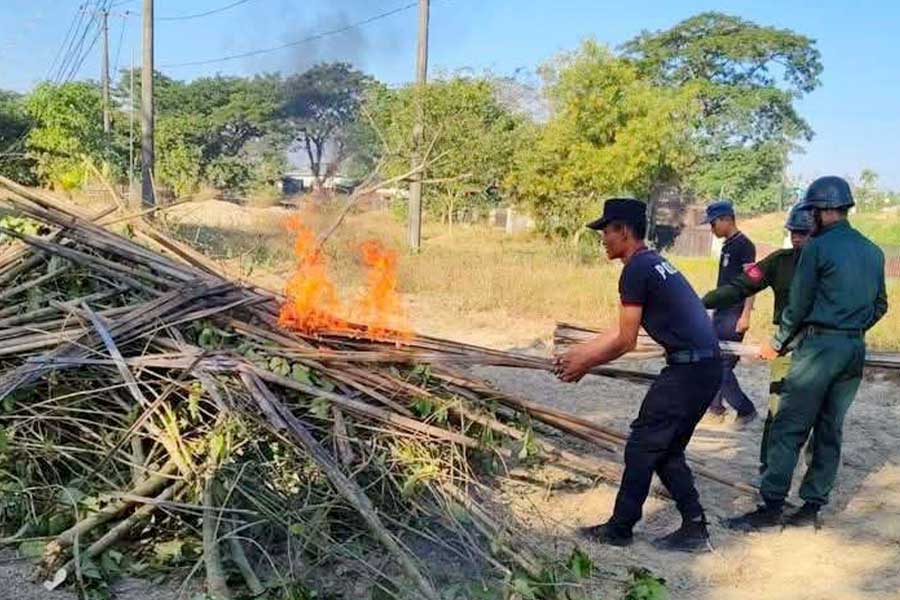- Weekly Highlights from Arakan (Feb 23 to March 1, 2026)
- Over 300 political prisoners freed from 10 prisons nationwide
- DMG Editorial: Between War and Opportunity - A New Border Reality for Bangladesh and Arakan
- Arakan Army sets five-year prison term for kratom cultivation in controlled areas
- Junta airstrikes kill over 25, including Arakanese merchants, in Mindon Twsp
Imports shaking up salt market in Arakan State
With Arakan State consumers showing a growing preference for salt imported from abroad, salt makers in the state are facing losses, according to the Salt Manufacturers Association.
12 Jun 2020

Myo Thiri Kyaw | DMG
12 June, Sittwe
With Arakan State consumers showing a growing preference for salt imported from abroad, salt makers in the state are facing losses, according to the Salt Manufacturers Association.
Arakan State’s makers use traditional salt production methods, but consumers are increasingly opting for imported salt manufactured using more advanced technology. As a result, the market for sun-dried salt is shrinking, said U Than Win, secretary of the association.
“We use seven steps to evaporate seawater in the sun. It is a traditional, sun-dried production process adopted 30 years ago. We also want to manufacture salt at a quality as good as the products from other countries, but we do not have technology. Consumers do not like the salt we manufacture because it has larger crystal size than refined salt,” he said.
The table salt made locally includes sometimes muddy colouring due to the traditional methods used and lack of advanced treatment processes, another reason for a shifting preference among consumers for imported varieties, he added.
“We previously used the salt manufactured by our local salt makers. But it is not as clean as the salt imported from abroad. So, we now use imported salt,” said Daw Ma Khaing, a housewife in Sittwe who added that she wanted local makers to offer good quality salt because she was paying more for imported substitutes.
Sun-dried salt is mainly produced in Pauktaw, Kyaukphyu, Ponnagyun and Rathedaung townships in Arakan State, and sold to buyers in Kyauktaw, Ponnagyun, Mrauk-U, Minbya and Sittwe, according to salt makers.
Their traditional methods are also holding back local producers when it comes to potential export markets: More than a decade ago, Arakan State salt makers exported to Bangladesh, but the neighbouring country no longer buys the commodity from western Myanmar, after building facilities to enable domestic production of high-quality salt.

















